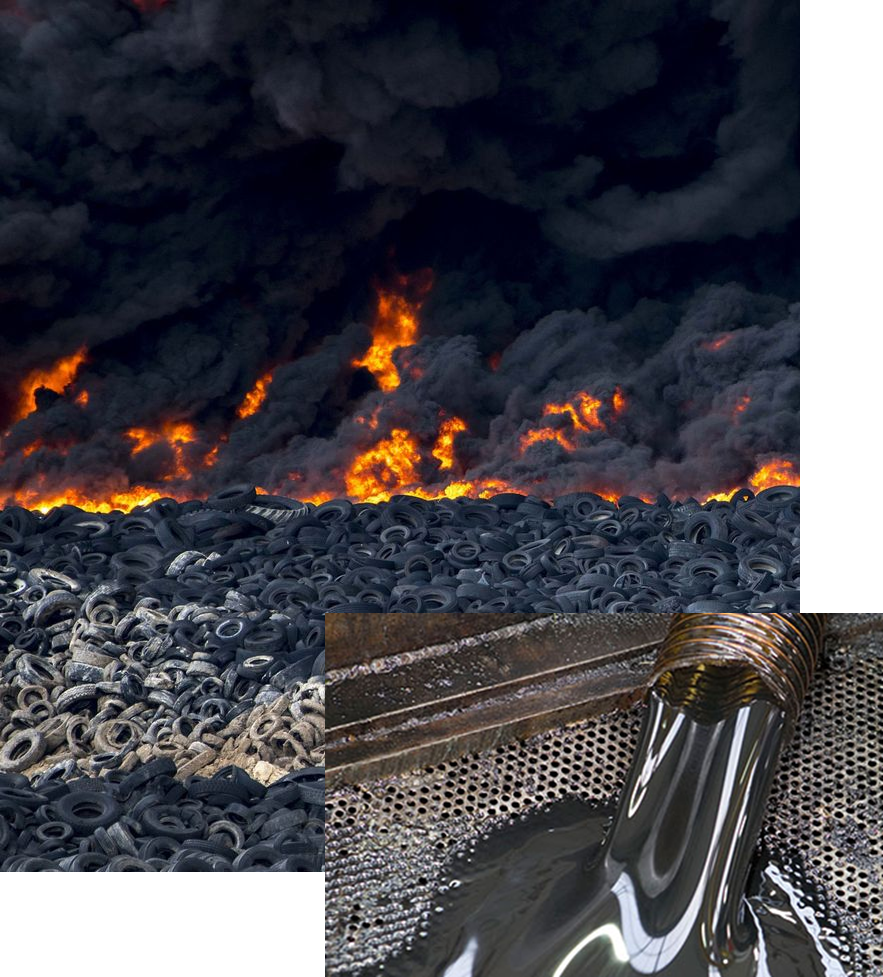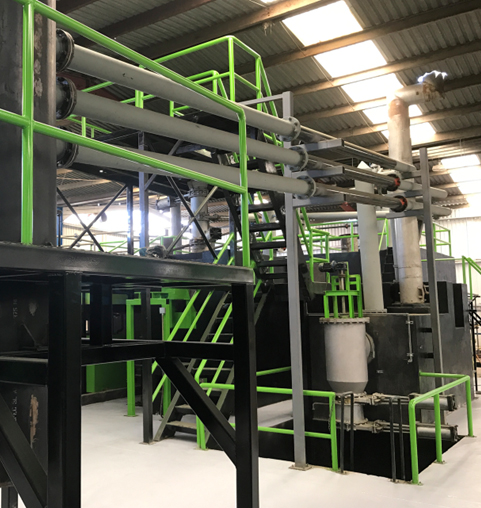Save the Planet
Our technology is an Integral Ecological Solution for Final Destruction of Hazardous Waste Municipal and Industrial.
Ecological Approach

Risk of fire. A tire or plastic fire can cause adverse impacts on the environment and public health, due to the compounds that make them up. Once the tires or plastic are burning it is difficult to put out the fire. The uncontrolled combustion of tires or plastic at relatively low temperatures (below 1092°C) tends to produce significant amounts of unburned hydrocarbons (thick black smoke) and emissions that are harmful to the atmosphere and city air quality. 38 compounds emitted into the air have been identified, with a harmful potential mainly due to exposure to hydrocarbons, metals, gases and inorganic vapors.
Air emissions from open burning of tires or plastic have been shown to be highly toxic, even mutagenic, as they include pollutants such as particulates, carbon monoxide (C0), sulfur dioxide (SO2), oxides nitrogen (NOx), volatile organic compounds (VOCs), polynuclear aromatic hydrocarbons (PAHs), dioxins, furans, hydrogen chloride, benzene, polychlorinated biphenyls (PCBs), and metals such as arsenic, cadmium, nickel, zinc, mercury, chromium, and vanadium. In addition, significant amounts of liquids and solids with harmful chemical contents derived from the melting of tires or plastic can be generated, which can be potential contaminants of soil, surface water, and groundwater.
Proliferation of harmful fauna. The definition of harmful fauna applies to those animal species, which due to environmental or artificial conditions (caused by man and his actions), increase their population, becoming a pest, potential vectors of infectious-contagious diseases or causing damage to human activities or goods as it cannot be regulated by natural mechanisms. This type of fauna proliferates in places where ecosystems have alternated and there are few or no health conditions.
The shape of the tires or plastic allows them to act as a reservoir because it captures or accumulates water from rain. In addition, the piled up tires or plastic absorb sunlight, creating a favorable environment in combination with stagnant water for the reproduction of mosquitoes.

Technological applications
Plastic, oil and tire recycling module for the production of premium fuel, LP gas, heat and/or electricity I Organic waste recycling module for the production of gas and electricity I Fluid dehydration and filtration I.
RAW MATERIALS THAT CAN BE RECYCLED AND/OR PROCESSED BY OUR TEAM:
- Municipal garbage
- Tire
- Engine oil
- Plastic
- Oil sludge
All raw materials are polluting agricultural, industrial waste that Blue Sky recycles ecologically to help the environment.





